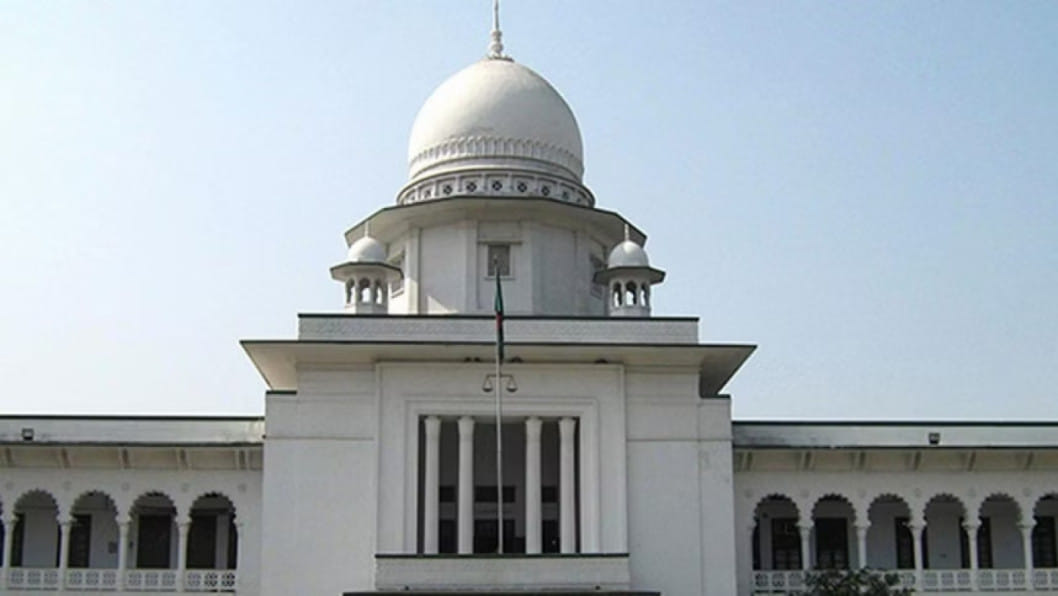Educate lawyers to uphold the court’s dignity

While the government looks to improve the quality of subordinate judiciary by providing its judges with domestic and foreign training, it is surprising that no such initiatives have been taken to educate the lawyers on ethical issues. As a result, they generally lack the understanding of the dignity of the court and the legal profession. District Judge Mohammad Faruk, who was subjected to verbal abuse by lawyers led by the president and general secretary of Brahmanbaria District Bar Association in January this year, sheds fresh light on this issue.
The goal, apparently, was to teach the judge a lesson for not following a resolution of court boycott declared by the lawyers, and make the local court subservient to their one-sided decision.
In a Facebook post, many users saw a group of lawyers forcing the learned judge to leave his bench. Following the incident, the judge alleged before the Supreme Court that he had faced serious harassment by the lawyers for questioning their court boycott and other illegal activities, including the filing of cases after hours. However, members of the Brahmanbaria District Bar Association also alleged that the judges behaved rudely with them, which eventually fuelled the flame against the district judiciary in Brahmanbaria.
The very nature of the allegation in which the district judges of Brahmanbaria are implicated – for corruption and misbehaviour with the lawyers – is not linked to the incident. In the hearing of a ruling recorded suo motu by the Supreme Court, the attorney general was expected to appeal to the court on behalf of the judiciary to take action against the lawyers involved in the incident, and also demand that they be punished for the contempt of court.
One side effect of this incident is that an important issue like the necessity of ongoing training for the lawyers has been pushed to the background. This could rather be a point of reference for why professional training is important for such a noble career. This could also be an example of how lawyers' out-of-pocket expenses are rising in the competitive profession, while their ethical standards are declining dramatically – despite promises made by the government to increase the capacity of the subordinate judiciary. Instead, the legal profession has become mired in power abuse and intimidation, where lawyers are using their professional capacity to control the judiciary.
The fact is, despite significant efforts taken by the government and the higher judiciary to paint a picture of accountability within the subordinate judiciary, lawyers, who are an important part of it, remain largely unaccountable – especially when it comes to violations of ethical standards, including the basic duty to follow a court's instruction.
Lawyers must understand that their duty to the court is paramount, and when there is conflict between their duty to the client or other lawyers and to the court, the court should get priority – which is the only way they can claim that they are serving the administration of justice. While one may use the excuse that the dispute between the lawyers and the court is an internal one, and it is between the bench and bar to minimise tension between the parties, the truth is, lawyers in Bangladesh don't fully understand their basic duty to the administration of justice and, notably, the government has done very little to educate them.
It goes without saying that when illegitimate claims are not addressed properly, it only leads to further violence in court premises. It leads to further frustration among judicial officers. While lawyers are expected to uphold professionalism on their own, a training module run by prominent figures who have served the judiciary with dignity would definitely improve the situation. Hence, the authorities concerned should take quick steps to provide said training to the lawyers. Not only that, but it is also important to prioritise addressing a court issue that may lead to such violence.
The authorities must ensure that no such misconduct occurs in handling the matters of courts, especially when Bangladesh is trying to improve its global image in addressing the lack of capacity of democratic institutions.
Dr Mohammad Zulfikar Ali is associate lecturer at Curtin Law School, Curtin University in Australia.

 For all latest news, follow The Daily Star's Google News channel.
For all latest news, follow The Daily Star's Google News channel. 









Comments